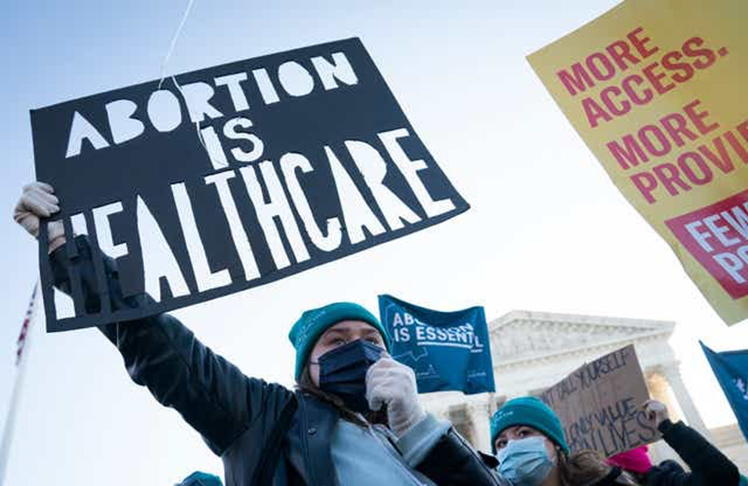
The conservative Supreme Court seemed poised Wednesday to uphold a Mississippi law that bars abortion after 15 weeks. The Mississippi law bans most abortions after 15 weeks of pregnancy – allowing them only in medical emergencies or cases of severe fetal abnormality.
Chief Justice John Roberts seemed to be looking for a middle ground to allow states to ban abortion earlier, moving up the viability line from the current 22 to 23 weeks, but leaving in place some remnants of a woman’s right to end an abortion. He said 15 weeks was not a “dramatic departure” from viability. A majority of the court’s conservative justices suggested they were prepared to discard the court’s previous standard that prevented states from banning abortion before a fetus becomes viable, which is generally considered to be at about 24 weeks into a pregnancy.
“It is particularly important to show that what we do in overturning a case is grounded in principle and not social pressure,” Justice Stephen Breyer warned.
“It is particularly important to show that what we do in overturning a case is grounded in principle and not social pressure,” Justice Stephen Breyer warned.
Supporters argue that the law is intended to regulate “inhumane procedures” and that a fetus is capable of detecting and responding to pain by that point in a pregnancy. Opponents contend that the Supreme Court has repeatedly ruled that the Constitution protects abortion.
The Mississippi law takes aim at the court’s landmark 1973 Roe v. Wade ruling, as well as the 1992 decision in Planned Parenthood v. Casey. The court has held that states can impose some restrictions on abortion as long as they do not present an “undue burden” and that the procedure cannot be prohibited before fetal viability.
Polls show Americans are divided on the issue. Nearly two-thirds say the Supreme Court should uphold Roe according to a recent Washington Post-ABC News poll. At least 17 states have enacted “trigger bans” or have pre-Roe abortion bans already in place in the event the Supreme Court overturns the landmark ruling, according to the Guttmacher Institute, a research group that supports abortion rights.















